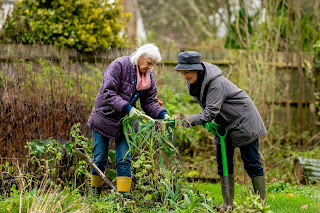What is ageing ?
In simple words, ageing is the process of gaining maturity with the passage of time. In the context of demographic study, ageing is defined as the increase in elderly share of totally population. Biologically, ageing is the process of losing physical, mental, and other bodily strengths with respect to time. The development of science and technology has improved the health condition of human beings. Many diseases are eradicated and people have increased their life expectancy.
Therefore, the percentage of elderly population is increasing in the world. Ageing has become a global issue of demographic studies nowadays. It is a natural process assisted by medical and technological advancement achieved by human beings. In developed countries like Japan, elderly share has become very high leading to remarkable increment of dependent population.
Causes of Ageing
There are different causes of getting older. Some of them are as follows;
a) Reduction in physical strength and power
Due to the lack of nutritious food, loss of digestive function, and lack of proper exercises and rest, people lose physical strength and power. Ultimately, it causes ageing in them.
b) Increase in mental stress and tension
Nowadays, people have multidimensional stress in their life. They take too much mental burden. Increase in such mental stress affects physiological phenomenon adversely releasing harmful toxins in human body. It causes ageing.
c) Gradual loss of immune power
Immune power is the strength of human body to fight against foreign germs and toxic materials. With the passage of time, immune power is lost and prevalence of diseases increases. It assists in the process of ageing.
d) Onset of chronic and acute diseases
Diseases obviously decrease the natural function of human body. If there is an onset of disease in any part of the body, it leaves negative effect in that part . It results in decrease in strength and function too. Thus, the onset of chronic and acute diseases accelerates ageing.
Changes in Ageing
As people grow older, there appear several changes in them. These changes can be divided into five parts. The changes in ageing are:
a) Physical changes
- Wrinkle and dry skin
- Gray hair
- Loss of sensations (touch, hearing , vision, taste, smell sensations)
- Stoop backbone
- Loss of appetite
- Fatigue, tiredness
- Difficulty in respiration
- Loss of creativity
- Loss of memory
- Inefficiency in solving problems
- Feelings of loneliness
- Inclined affinity towards paraphysical existences like God and soul
- Anxiety
- Lack of decision power
- Lack of adjustment with new social trends
- Lack of understanding new social norms and values
- Change in the social position and dignity
- Increase in social prestige and respect
- Involvement in religious and social works
- Lack of involvement in social works and activities.
- Increased feeling of loneliness.
- Quick tempered behavior.
- Lack of interests and curiosities in new matters
- Loss of happiness, lack of participation in recreational activities
- Loss of income sources
- Lack of financial resources
- Increased economic security
- Loss of income sources
- Lack of financial resources
- Increased economic security
Problems of Ageing
Caring of elderly people
- It is the duty of the state to take care of elderly people who are destitute and neglected from their family.
- Society should give proper respect to the elderly people and use their knowledge and experiences in constructive works.
- Young generation should be loyal to and careful about their parents and grand parents. They should be close and inquisitive about their problems.
- Family should create friendly and affectionate environment towards elderly members.
- Elderly people should have frequent health check-ups.
- They should be involved in entertainment and recreational activities for relaxation. Family members must assist them in such activities.
- By nature, elderly people like to involve in religious activities. Therefore, family or community must help in creating religious environment and functions for them.
Importance of Elderly People
- Elderly group of people possesses enormous knowledge and experiences of life. We can learn useful life-skills from them.
- They are the sources of inspiration for us. Looking at their struggle and success, we can modify our activities at present.
- Child care is easy in the joint families with elderly members. They contribute indirectly in the economic development by freeing adults to involve in income generating activities.
- They are the most important tool of the society in inheritance of social norms and values.
- They help in propagation of knowledge and information about historical events of long-term significance.










0 Comments
Any queries ! check out here